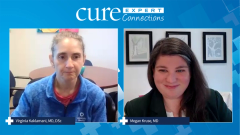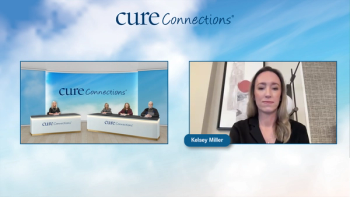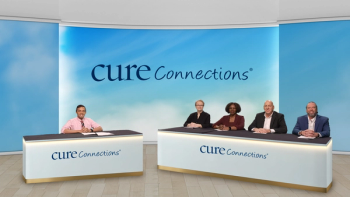
Opinion|Videos|May 15, 2025
Real-World Experience: The Efficacy and Tolerability of Oral Elacestrant for Patients with ESR1 Mutations
Author(s)Virginia Kaklamani, MD, DSc, Megan Kruse, MD
Panelists discuss how real-world studies have shown improved outcomes with elacestrant compared with the original EMERALD trial data, demonstrating that proper patient selection leads to better treatment responses.
Advertisement
Episodes in this series

Clinical Brief: Real-World Evidence Supporting Elacestrant Use
Main Discussion Topics:
- Real-world outcomes exceeding clinical trial results (unusual finding)
- GUARDIAN database analysis: 6.4 months median time to treatment failure
- Komoda database: 6.8 months progression-free survival (9.4 months if fulvestrant-naive)
- Expert clinical experience aligning with real-world data
- Importance of appropriate patient selection for optimal outcomes
Key Points for Physicians:
- Real-world PFS (6.4-6.8 months) exceeds EMERALD trial results (3.8 months)
- Fulvestrant-naive patients show particularly strong outcomes (9.4 months)
- Early adopters report better results with refined patient selection
- Confirms benefit of using elacestrant in second-line for appropriate patients
- Real-world data validates subgroup findings from EMERALD
The real-world evidence conclusively demonstrates that proper patient selection based on EMERALD subgroup analyses results in significantly improved clinical outcomes compared with the overall trial population.
Advertisement
Advertisement
Advertisement
Trending on CURE
1
Why Is Lung Health Key to Survivorship After Cancer Treatment?
2
U.S. Soccer Legend Kasey Keller Reveals Lymphoma Journey
3
New Combination Treatment Approach Studied in Pancreatic Cancer
4
FDA Updates Safety Warnings for Common Chemotherapy Drugs
5


